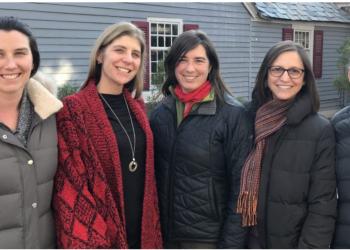This project investigates new sustainable markets for New England seafood. Climate change challenges the socio-economic and environmental sustainability of New England's seafood industry. A warming Gulf of Maine compounds the complex puzzle of ecosystems, fish population dynamics, and catch limits for specific fisheries. Cascading effects on fishermen, seafood processors, markets, and restaurants provide a network of challenges that are difficult to disentangle. This multifaceted challenge highlights the need for collaborative, cross-disciplinary research to build sustainable new markets for seafood. This proposal brings together a team with diverse expertise in ecology, climate change adaptation, economics, stakeholder engagement and product development. We aim to support the fishing industry by investigating consumers’ seafood choices, sustainable fishing practices, and seafood products that contain lesser known yet abundant species.
The work will obtain new data to support ongoing pilot-work and support future proposals. Pilot data include: 1) fisherman’s perspectives on local and underutilized fish species and preservation methods, and 2) consumer acceptability of new artisanal preserved fish products. Seed grant funds will be used to execute semi-structured interviews with New England fisherman, an online consumer survey, and a consumer sensory experiment. These funds will support the collaborative relationship between team members, building an interdisciplinary working group to pursue larger research funds.
This is a multi-disciplinary project that encompasses economics, marine ecology, food science, and environmental science in research and extension. Dr. Alissa Nolden is the project PI, with co-PIs Dr. Katie Kahl, Dr. Michelle Staudinger and Dr. Ezra Markowitz.
Project Goals & Objectives:
In this project, the goal is to provide cross-disciplinary evidence to establish an understanding of fishermen’s and consumers’ perspectives on locally sourced value-added products. The two objectives include:
1) Determine target fish species and preferred preservation methods among stakeholders in the New England fishing community.
2) Estimate consumer preference for local seafood and valued-added seafood products.
Relevance:
Recognizing that the New England fishery industry do not have the resources to determine potential profitability or consumer acceptability, this project aims to support the fishing industry by investigating consumers’ seafood choices, sustainable fishing practices, and seafood products that contain lesser-known yet abundant species.
Outputs & Extension Materials:
Currently we are engaging with stakeholders in the New England fishing community to identify which local, climate resilient and underutilized fish species would be best suited for an artisanal preserved product.
Support:
This seed funding is supported by UMass through the National Science Foundation ADVANCE program.
